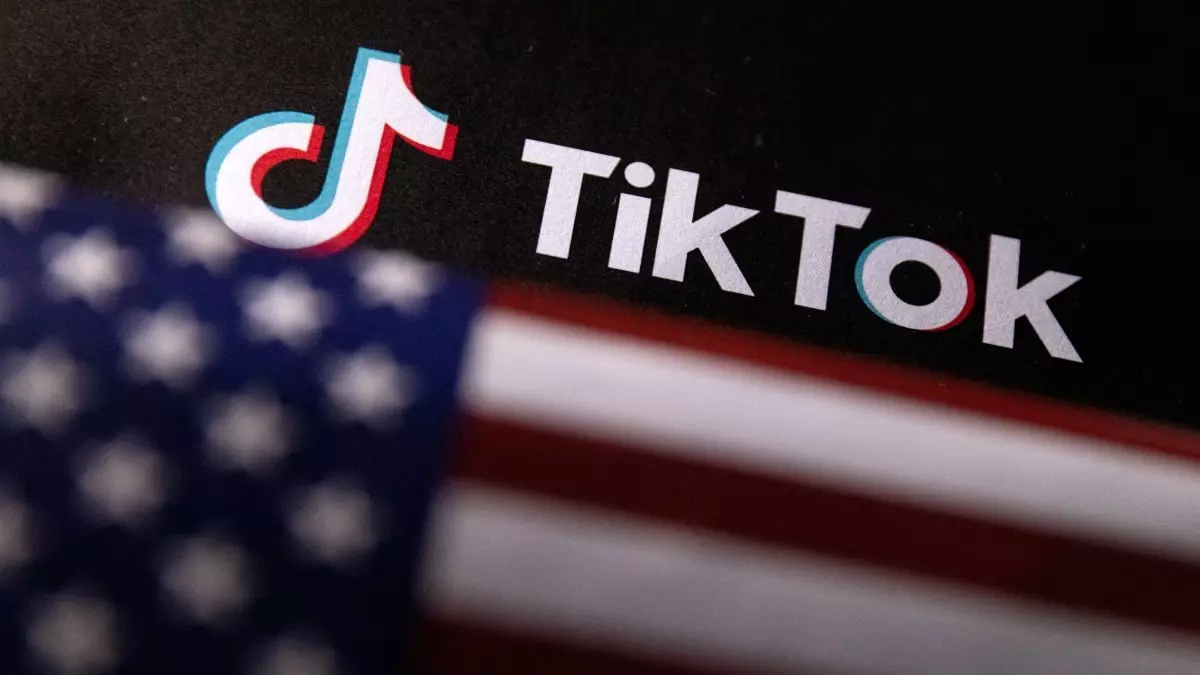The landscape surrounding TikTok in the United States has been nothing short of tumultuous. Recently, the app made its return to the Apple and Google app stores after a brief but concerning absence that left millions of users in limbo. This instability stemmed from national security concerns regarding the app’s Chinese ownership by ByteDance, which have prompted the U.S. government to explore potential restrictions or outright bans on the platform. The current situation reveals the precarious balance between technology, governance, and consumer demand, presenting a complex challenge for all parties involved.
TikTok had been a pivotal player on the social media stage, with downloads surpassing 52 million in the U.S. alone last year, illustrating its immense popularity. However, the app’s connection to China raised red flags amongst U.S. officials, fueling accusations of potential espionage and data privacy violations. As a response, former President Trump signed an executive order aimed at delaying enforcement of a ban, offering a 75-day window during which the social media giant could continue its operations. The executive order sought to strike a balance between national security and the enduring demand for entertaining, user-friendly content that has made TikTok a household name.
The law, passed under President Biden, compels ByteDance to divest its American operations or face a complete ban. This sweeping legislation has set a significant precedent, as the U.S. has never before imposed a prohibition on a major social media platform. What this means for TikTok is a fragile continue-to-be or a forced exit from a crucial market.
The fact that TikTok was absent from Apple’s and Google’s app stores even after the executive order underscores the cautious stance taken by these tech giants. Analysts speculated that the delay implementation might have been exacerbated by the companies awaiting further legal clarifications to avoid potential penalties for hosting TikTok on their platforms. President Trump’s assurances that these companies would not face repercussions for maintaining the app spring from a broader concern over supporting a platform that could be embroiled in legal disputes.
As of now, the primary question remains: how do corporations navigate regulations while ensuring the most favorable experience for users? For Apple and Google, the stakes involve not just profits but also their reputations as providers of safe and responsible digital marketplaces. This paradox highlights the intricate dance between maintaining consumer engagement and adhering to government directives.
The Marketplace: An Evolving Landscape
The ongoing uncertainty surrounding TikTok has attracted significant interest from potential buyers. Notably, former Los Angeles Dodgers owner Frank McCourt has expressed interest in acquiring the platform, hinting at the high value analysts attribute to TikTok, estimated at a staggering $50 billion. The volatility surrounding the app has fostered a dynamic marketplace where several key players are eyeing the potential for substantial returns in their investments.
Trump’s remarks about ongoing discussions for TikTok’s sale elevate the issue from just a regulatory challenge to a market opportunity. If negotiations lead to a successful sale, it could redefine TikTok’s operational framework in the U.S. and stabilize the climate of uncertainty that has surrounded it.
As TikTok reestablishes itself in the U.S. app stores, the broader implications of this scenario remain to be seen. The interplay between national security, consumer demand, and market dynamics presents a unique challenge for law-makers, technology companies, and users alike. While President Trump’s 75-day extension provides some temporary relief, the looming threat of a permanent ban or the forced sale of the app could very well shape its future trajectory. Whether through a stable acquisition or regulatory changes, the fate of TikTok in the U.S. serves as a testament to the complexities of modern digital governance and the role of consumer technology in our daily lives.


Leave a Reply
You must be logged in to post a comment.